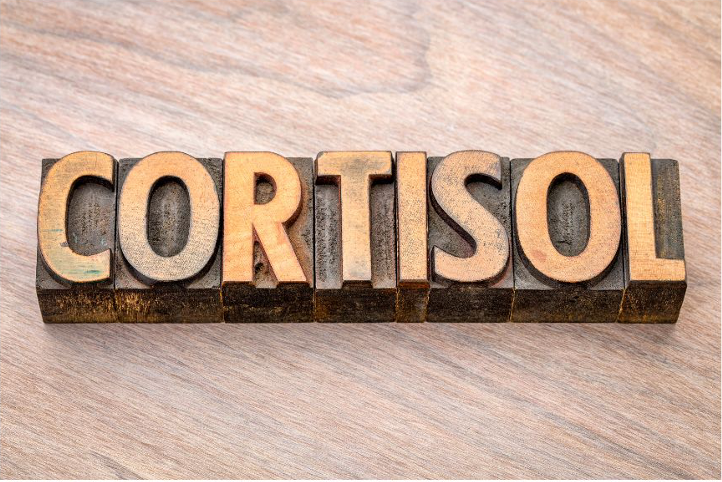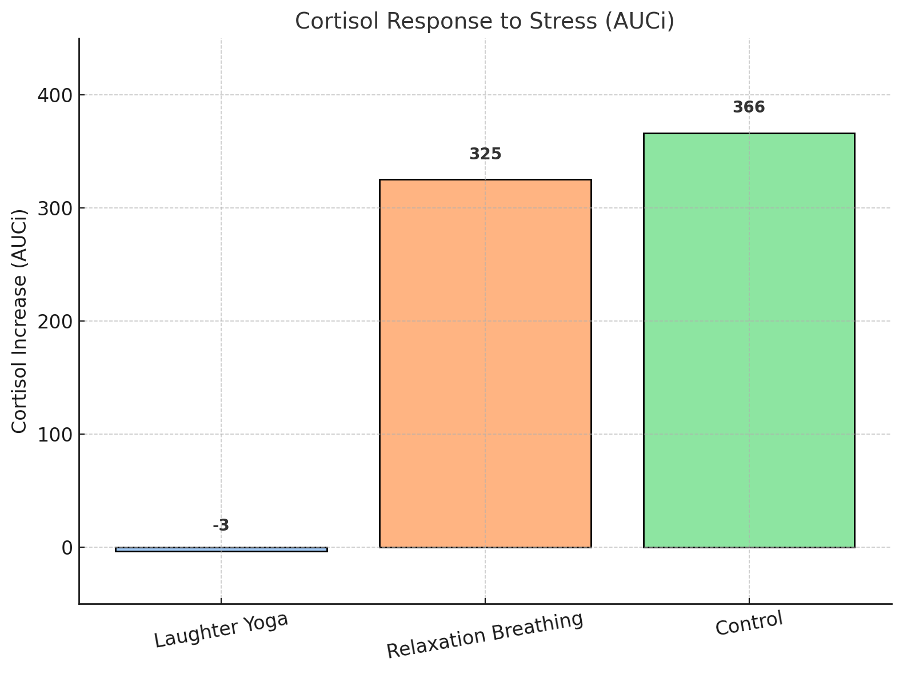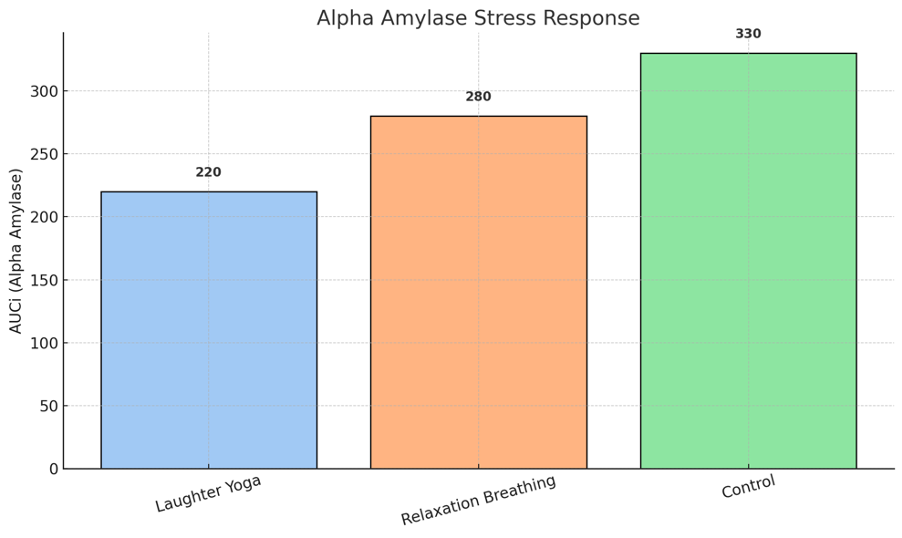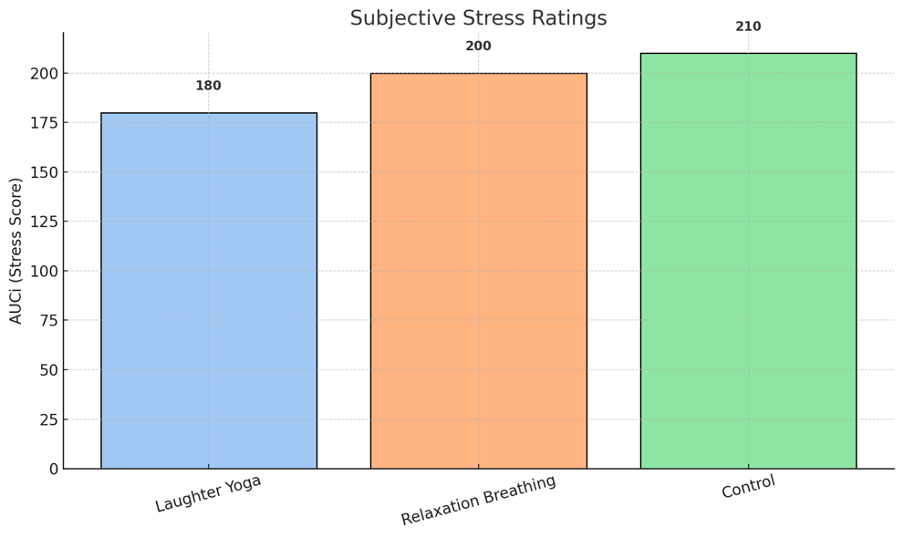
Researchers & Institutions
Lead Researchers: Maria Meier Lisa Wirz
-
- Philip Dickinson
- Jens C. Pruessner
- Affiliations:
- University of Konstanz (Germany)
- Ruhr University Bochum (Germany)
- McGill University & Douglas Mental Health Institute (Canada)
- Study Location: Montréal, Canada
- Funding: Canadian Institutes of Health Research
Objectives of the Study
To test if a 30-minute Laughter Yoga session could:
- Reduce cortisol (the body's primary stress hormone)
- Lower alpha-amylase (a stress-related enzyme)
- Reduce subjective feelings of stress
All of these were measured after exposing participants to a stress test (a mock job interview and math task in front of a panel).
Participants
- Number: 35 healthy young adults (51% female)
- Age Range: 18 to 34 years (average ~24 years)
- Exclusion Criteria:
- Smokers, heavy drinkers
- People on medications affecting hormones
- People with psychiatric disorders or hormonal imbalances
Study Design & Protocol

Stress Induction
After the 30-minute sessions, all participants were exposed to:
- TSST-G (Trier Social Stress Test for Groups)
A standardized and widely used stress test involving:- Giving a 5-minute speech for a job interview
- Solving a tough mental arithmetic task
- In front of a panel (no positive feedback, being videotaped)
This test is known to raise cortisol and stress levels significantly.
Measurements
Taken repeatedly before, during, and after:
- Salivary Cortisol – Hormonal stress response (via saliva samples)
- Salivary Alpha-Amylase – Nervous system stress response
- Subjective Stress Ratings – Using a 0 to 100 scale (how stressed they felt)
Key Results
Cortisol (Stress Hormone)
- Laughter Yoga group had significantly lower cortisol after the stress test.
- Cortisol levels in the control group were the highest, showing they were the most stressed physiologically.
- Relaxation breathing helped slightly but not significantly.

Alpha-Amylase (Autonomic Response)
- No significant difference between the three groups.
- LY group showed a slight decrease, but it wasn’t statistically significant.

Subjective Stress (How People Felt)
- All participants felt equally stressed, no matter the group.
- Laughter Yoga helped the body, but not the perception of stress.

Interpretation & Insights
- Laughter Yoga seemed to buffer the body’s stress response, especially by reducing cortisol.
- The emotional experience of stress did not change – people still felt pressure.
- This suggests Laughter Yoga helps you “keep calm on the inside,” even when you feel stressed.
Why Laughter Yoga Worked?
Researchers suggested:
- Social bonding and shared laughter reduced the feeling of social threat.
- Laughter may reduce shame and self-awareness, two factors that trigger cortisol spikes in social stress.
- Group laughter created a feeling of connection, which may reduce stress responses even in threatening situations.
Conclusion
Laughter Yoga reduced the body’s hormonal stress response (cortisol) after facing an acute challenge, making it a cost-effective, easy-to-implement tool for stress management.
Even if you still feel nervous or anxious, your body stays calmer—and that can protect your long-term health.


